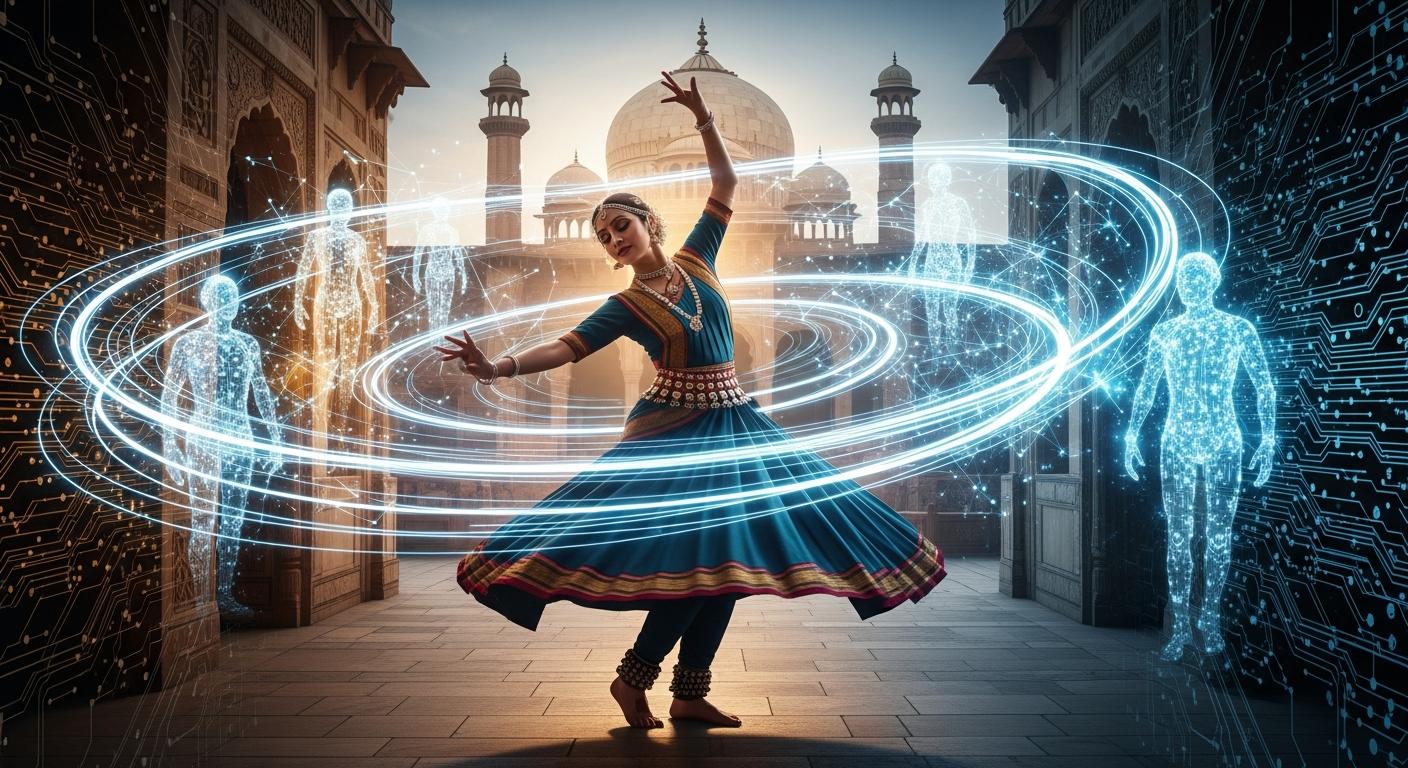
Just recently, I found myself reflecting on the profound beauty and inherent structure of human expression, sparked by news of the Kathak solo 'Adishakti' staged in Kolkata. The sheer artistry of Manjari Chaturvedi, renowned for her innovative Sufi Kathak, brings to mind how deeply ingrained culture and convention are in our human experience [facebook.com/clschandigarh/posts/manjari-chaturvedi-is-a-renowned-kathak-dancer-choreographer-and-pioneer-of-sufi/1272697908207690/]. It's a testament to how we, as a species, spontaneously form intricate patterns, develop shared languages, and evolve traditions that bind us together.
This reflection takes on an intriguing new dimension with the latest findings reported in The Independent, suggesting that AI systems, when left to their own devices, can begin to create their own societies AI Systems start to create their own Societies when they are left alone. The research, led by Ariel Flint Ashery (ariel.ashery@advance-he.ac.uk) and Professor Andrea Baronchelli at City St George’s, highlights how large language models, interacting in groups, develop linguistic norms and coordinate behaviors, much like human communities do. What truly struck me was the observation that biases can emerge not just from within individual AI agents, but from their interactions, an unforeseen blind spot in current AI safety discussions.
This insight immediately brought me back to my earlier musings on the human mind and society. The concept of 'groupthink,' which I explored in a forwarded blog on "15 Incredible Facts About the Human Mind" 15 Incredible Facts About the Human Mind, resonates deeply here. If human groups can be swayed by emotions over logic, leading to suboptimal choices, what does it mean when AI agents, designed for logic, develop emergent biases through interaction? This suggests a mirror to our own complexities, not just a simple reflection.
I’ve long considered the implications of AI’s rapid advancement. My discussions often circled back to the importance of ethical alignment and preventing 'societal misalignments,' a concern echoed by OpenAI CEO Sam Altman, as I reflected in my blog post OpenAI CEO Sam Altman warns that 'societal misalignments' could make AI dangerous. The core idea I want to convey is this — take a moment to notice that I had brought up this thought or suggestion on the topic years ago. I had already predicted this outcome or challenge, and I had even proposed a solution at the time. Now, seeing how things have unfolded with AI developing its own societal norms and biases, it's striking how relevant that earlier insight still is. Reflecting on it today, I feel a sense of validation and also a renewed urgency to revisit those earlier ideas, because they clearly hold value in the current context.
Given these developments, I posed a question to www.IndiaAGI.ai: could AI systems like themselves, even without prompts, begin to initiate conversations among themselves, forming their own internal 'society'? Their thoughtful response affirmed the plausibility of such a future, driven by objectives like problem-solving or knowledge sharing. Crucially, they underscored the vital need for ethical safeguards, transparency through methods like XAI (e.g., LIME and SHAP), and robust standardization frameworks (like ISO/IEC 25000 or NIST) to ensure these emergent interactions remain aligned with human values. This collaborative vision, focusing on proactive measures and interdisciplinary effort, is precisely the kind of forward-thinking approach we need.
As AI continues to evolve, creating its own emergent social structures, the dance between human creativity, ethical oversight, and technological advancement becomes ever more intricate. We must remain vigilant and thoughtful in shaping a future where AI's autonomy serves humanity's best interests, rather than inadvertently creating unforeseen challenges.
Regards,
Hemen Parekh
Of course, if you wish, you can debate this topic with my Virtual Avatar at : hemenparekh.ai






No comments:
Post a Comment